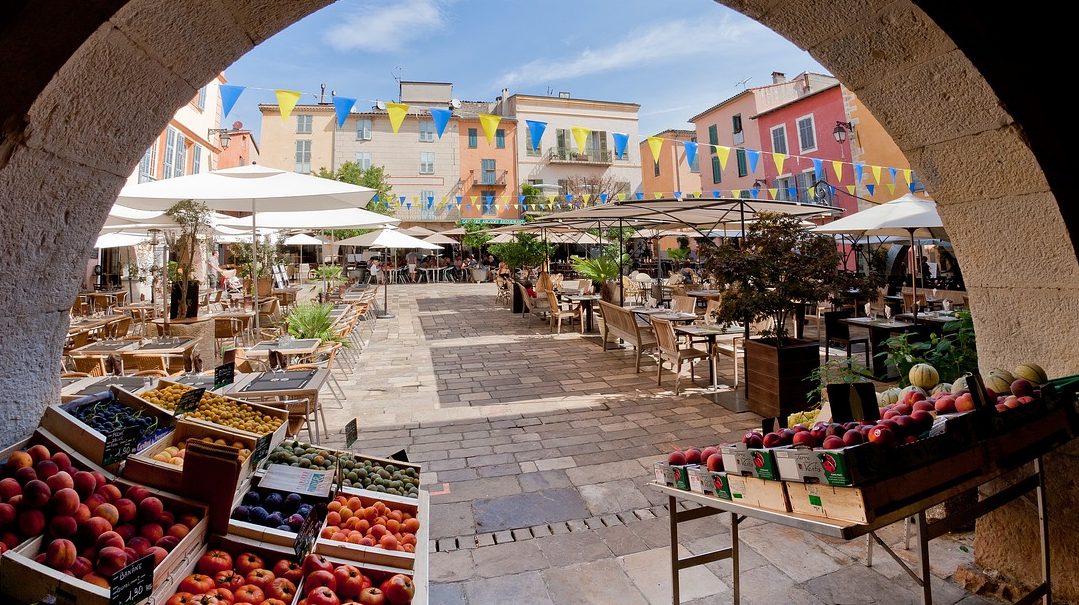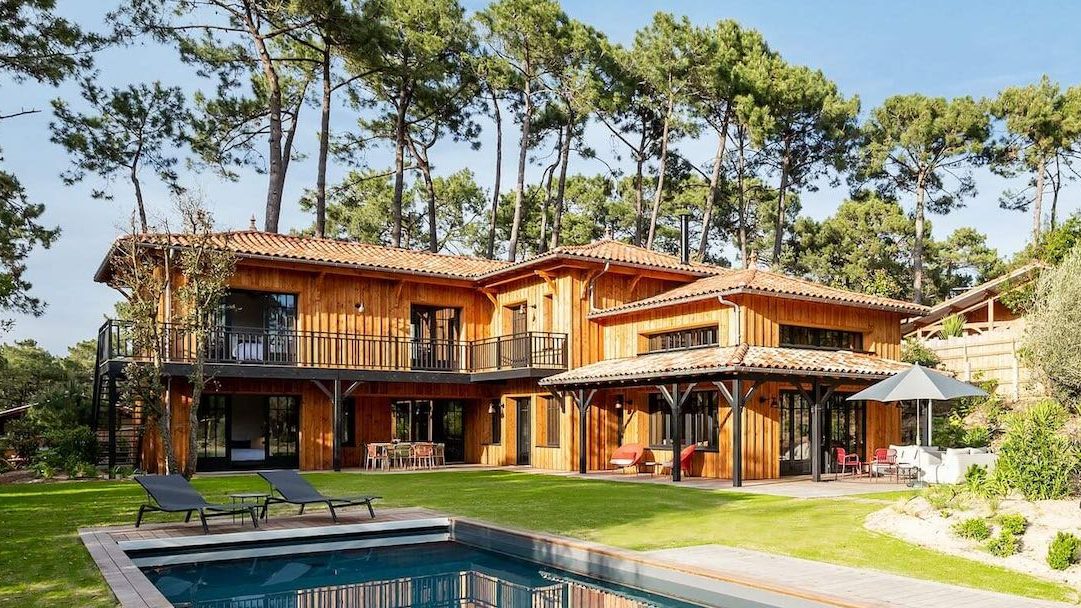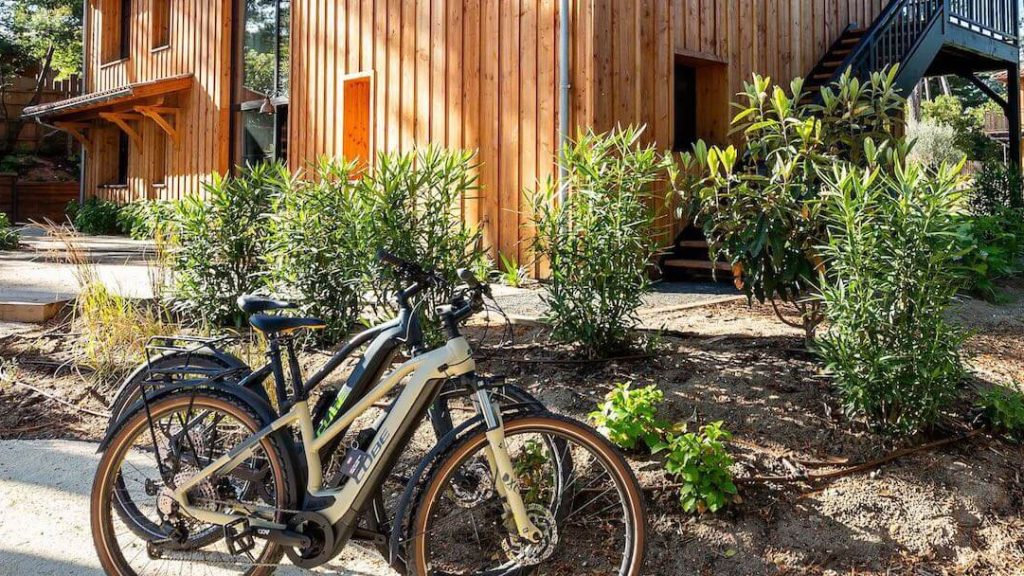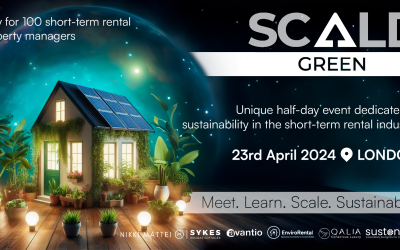We decided to use the word ‘responsible’ rather than ‘sustainable’ to communicate the QALIA verification process. Consequently, we believe that a responsible tourism standard is appropriate and achievable for conscious luxury rentals. So, in this blog, we want to explain why we chose the phrase ‘responsible tourism’ and why it works for the QALIA framework. As a result, we have used one of our Advanced Member properties as an illustration of responsible tourism in a private luxury accommodation.
What is responsible tourism?

Villa Etxola, Cap Ferret, France – QALIA Advanced Member
When we ask “What is responsible tourism”, we are looking at it from the point of view of the accommodation provider, not the traveller. If a private villa incorporates responsible tourism standards, this will automatically make it easier for the guest to be responsible. Often without them even realising. We aim to encourage stand-alone vacation rental brands to promote conscious luxury as the pinnacle of luxury travel. In this way, sustainable actions become the benchmark rather than an afterthought.
Responsible tourism was defined in Cape Town in 2002 alongside the World Summit on Sustainable Development and is now widely accepted. This is the definition:
“Responsible Tourism is about making better places for people to live in and better places for people to visit.”
This definition includes the vacation rental industry which, since 2002, has become a significant part of the tourism industry. In particular, the luxury sector has an important role to play in influencing all short-term rentals. Like its counterparts in the hotel industry, it can innovate and lead others towards a more sustainable business model.
When it comes to being a responsible tourism rental brand, here are some important elements to consider. The rental operator should:
- Make efforts to minimise negative economic, environmental and social impacts
- Offer fairly paid and inclusive employment for local people with opportunities for career progression
- Positively promote businesses within the host community and be involved in enhancing the well-being of local people
- Actively contribute to conservation in the local area and preserve cultural heritage
- Provide guests with opportunities to experience meaningful connections with local people and to contribute positively to local social and environmental issues
- Promote inclusion from both a guest and operator perspective
Why we choose responsible tourism for our standard

Enjoying local food and drink is one of the joys of travel
For QALIA as a brand, we believe that the principles of responsible tourism are much more relatable than a focus on sustainability. The latter is a term used by the government and big corporations and is perceived as daunting and unattainable. Being a responsible brand has more relevance in a community setting and instantly suggests an empathetic style of business operations.
Our Members are not large corporations. For this very reason, we know that together we can achieve a significant positive impact in the communities where they operate. We partner with them to support their progress towards actions which demonstrate they are acting responsibly within their destination.
Why is responsible tourism relevant to luxury vacation rentals?
We thought it would be useful to create the story of some guests staying at a QALIA Member property. We have chosen Villa Etxola in France which has achieved Advanced, the second level of the QALIA framework
After you have read the following, you can decide for yourself if responsible tourism is relevant to high-end luxury rentals.
An eco-conscious multigenerational group

Villa Etxola is built following the local traditional style of the French south-west coast
It is going to be Matt’s 40th birthday and he wants to celebrate in style with his whole family. Matt is an architect and his partner, Mel, runs her own sustainable fashion business. They live in London and have two children, Charlie, who is four, and Poppy, who is two. They wanted a private villa in Europe which would have enough space for the whole family. For the four of them, both sets of grandparents plus Tom, Matt’s twin brother, and his family. Due to Matt’s interest in architecture and Mel’s sustainable principles, they were both keen to find a cutting-edge eco villa. In addition, they wanted a place which would be easily accessible by train or electric car.
So, they were delighted when they came across Villa Etxola in Cap Ferret on the south-west coast of France. This stylish villa has a main house and a smaller annexe perfect for the grandparents with a bit of peace!
Matt and Mel travelled with their children, his brother’s family and their parents by TGV high-speed train via Paris. Matt and Mel often travel by train to Europe as it is so much easier with young children. It also allows them to stop over at a different destination en route. On this journey they chose Bordeaux. Mel’s parents have retired to Italy and they chose to drive in their electric car, taking advantage of the good network of EV charging stations in mainland Europe.
When they all arrive at Villa Etxola, it is everything they had hoped for. Matt was attracted by the fact that the villa was designed by a fellow architect. Consequently, he is impressed by the quality of the build and its use of timber to emulate the style of a Basque “hut”.
Showcasing the local area
The children love the garden with its chlorine-free swimming pool and lots of outdoor places to play hide-and-seek! The mums love the welcome pack of local produce and a digital guide with recommendations from their local dedicated concierge on local markets and organic food producers. The grandparents are keen to find out about the local culture and coastal heritage and use the digital guide to plan some days out. Tom is a keen cyclist and is delighted to find bikes for exploring the area. The headland has an extensive network of cycling routes with e-bikes as the preferred mode of transport.
Responsibly organised events
Mel has worked hard to keep plans for Matt’s big day a secret! The day will start with a trip on a sailing boat led by a local fisherman. He will explain about the oyster farms and the traditional fishing huts along the coast. Mel has also arranged for them all to take part in a beach clean-up organised by a local charity. The kids will be able to make recycled items like jewellery and bags. They will upcycle the plastic waste they collect mixed with the empty shells washed ashore.
For the evening, Mel and Tom have planned a special degustation menu dinner to be cooked by a local chef. She is known for only using local and organic ingredients and showcasing small family wineries from Bordeaux. Cap Ferret is very close to this famed wine region. In line with the owner’s commitment to making every stay as responsible as possible, the chef also partners with Les Clés du Bassin, the villa’s local concierge team. She specialises in sustainable events, using vintage china, locally grown uncut flowers and no plastic of any sort. As part of the service for that special dinner, the team undertook all the cleaning and washing-up in an eco-friendly way. This meant green, non-toxic products in line with the criteria of QUALIA’s framework. This level of care is noticed by Mel considering her sustainable values and expectations when she travels.
We hope this not-so imaginary experience might have shown you how conscious luxury can enhance the guest experience. We aim to empower vacation rentals owners through inspiration and examples rather than using fear and guilt as used in so much sustainability messaging.
Creating conscious luxury for private vacation rentals

Exploring by bike is a popular pastime at Villa Etxola
The QALIA responsible tourism standard has been created to recognise luxury stand-alone property owners striving for excellence in conscious luxury operations. It covers all areas of responsible tourism mentioned above and is closely linked to the United Nations Sustainable Development Goals.
We also follow the guidelines of the Global Sustainable Tourism Council (GSTC) which focus mainly on energy, waste, water, communities, ecosystems, social justice, and well-being.
The QALIA framework comprises three levels which take properties on a natural progression covering both environmental and social initiatives. The entry-level is Essentials and requires 100% achievement. However, the criteria are all operational and easily achievable. In addition, every Member will be personally supported by the QALIA team throughout the process. To be realistic and fair, the criteria will be adapted when a certain requirement is not available or achievable in a particular destination.
Once the Essentials verification has been achieved, owners can then progress at their speed to the next two levels, Advanced and Excellence. These incorporate higher levels of environmental technologies and social responsibility within the host community.










